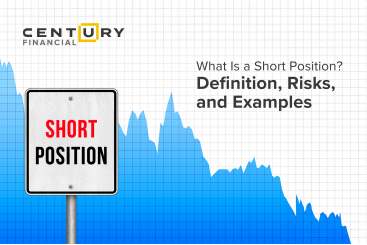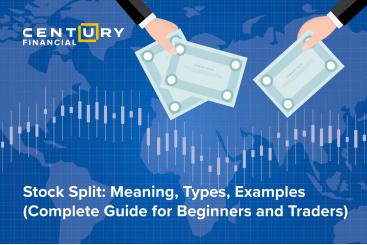Tuesday, November 01, 2022
What are Stock options trading, and how do they work?
تم إعداد هذا المنشور من قبل سنشري للاستشارات

.jpg)
When we talk stock options trading, we are talking about seasoned investors who understand the markets and seeking to widen their portfolio to hedge against risk, limit downside losses or go big to pursue outsized gains. After all, stock options, you see, offer many options.
What are options?
Options are basically contracts written by the seller that gives the buyer the right to buy or sell an asset, but not the obligation at a predetermined price in the future or before the contract expires. Usually, a stock option contract represents 100 shares of the underlying stock. However, options can include any underlying asset like bonds, currencies, commodities, etc.
When options are used correctly, they offer many benefits you may not get by trading stocks or ETFs. In fact, they can enhance an investor’s portfolio. They do this through added income, protection, and at times, even leverage. The simple truth is, depending on the situation or investor’s need, there is an option scenario always available.
Take this as an example: if you wanted to buy pharma stocks but also needed to limit your losses, you could use a put option to limit your downside risk and enjoy all the upsides.
.jpg)
Essentials of Options Trading
Here are some key types of options you need to be aware off
Call Options
When you decide to purchase a call option, you have the right but not the obligation to purchase an underlying asset at the given price on or before the set date. As the market value increases, the higher your profits will be. Additionally, you can sell call options but are obligated to sell at the market strike price if executed on expiry by the buyer.
Put Options
When you decide to purchase a put option, you have the right but not the obligation to sell at the strike price on or before a set date. As the market value decreases, your profits will increase. Just like call options, you can sell put options. You have the obligation to buy at the market strike price if the buyer exercises their option on expiry.
Leverage
You can speculate on market movements without owing the underlying asset. For a trader, it means profits, as well as losses, can be magnified if you’re selling options. This is an attractive option for traders as they get greater control than when trading spot markets. However, having an adequate risk management strategy is essential.
Hedging
Hedging is a way to limit potential losses a trader may face on other positions that may be open.
.jpg)
How do Options work?
Simply, in terms of valuing options, it is about determining the possibilities of price events in the future. So if something is likely to occur, then more expensive would the option be if the event did occur.
An option losses value the closer it reaches the expiry date, as the chances of it happening diminishes as it draws closer to the date. This is why an option is a wasting asset. Time is an essential component in pricing an option. For instance, a one-month option is less valuable than a six-month option as there is more time available the chances of a price move in your favor increase.
Another factor that increases the price of an option is volatility. The reason for this is that uncertainty pushes in favor of the option. Greater price swings will increase the chances of an event occurring.

How to Trade Options
Today, a lot of brokers give access to options trading if the customer is qualified. In order to access stock options trading, your broker needs to provide you with approval for both margin and options. Once approved, there are four basic things you can do with options:




If you grasp what options are and how they function, then managing them would not be difficult. When used correctly, they provide opportunities for an investor
لا تقدم شركة سنشري للإستشارات والتحليل المالي ش.ذ.م.م (الشركة) محتوى هذه المدونة، بما في ذلك أي أبحاث أو تحليلات أو آراء أو توقعات أو أي معلومات أخرى (يُشار إليها مجتمعةً باسم "المعلومات")، إلا لأغراض التسويق والتثقيف وإتاحة المعلومات العامة. ولا يُفسَّر ذلك على أنه نصيحة استثمارية أو توصية أو دعوة لشراء أو بيع أي أدوات مالية.
كما يجوز نشر هذه المعلومات عبر قنوات مختلفة، بما في ذلك موقع الشركة الإلكتروني، ومنصات الغير، والنشرات الإخبارية، والمواد التسويقية، ورسائل البريد الإلكتروني، ووسائل التواصل الاجتماعي، وتطبيقات المراسلة، والندوات الإلكترونية، وغيرها من وسائل التواصل. وبينما تسعى الشركة لضمان دقة المحتوى، فإنها لا تضمن اكتماله أو موثوقيته أو تحديثه في الوقت المناسب. وعليه، فأي قرارات تُتخذ بناءً على هذه المعلومات تكون على مسؤوليتك الشخصية. ولا تتحمل الشركة أي مسؤولية عن أي خسارة أو ضرر ناتج عن استخدامها.
ينطوي تداول المنتجات المالية على مخاطر كبيرة، بما لا يتناسب مع جميع المستثمرين. فيُرجى التأكد من وعيك التام بالمخاطر، وطلب الاستشارة المهنية المتخصصة إذا لزم الأمر.
يُرجى الاطلاع على بيان كشف المخاطر الشامل المتوفر على موقعنا الإلكتروني.



__1439480927.jpg)












